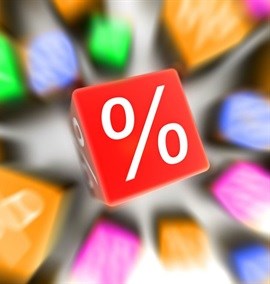When finance minister Pravin Gordhan announced an increase in the top marginal rate of tax by 4%, many wealthy franchisees and small business owners were taken aback. However, there are legitimate ways to reduce taxable income. Whichfranchise shares the following advice.
The increase takes the marginal tax rate for people earning in excess of R1.5 million a year to 45%. Only 75,000 taxpayers declare an income above the R125 000/month threshold it takes to earn R1.5 million a year. That may include some franchise owners, given that PayScale says the median salary for restaurant managers in South Africa is not far off that level at R94 324/month.
Two ways to reduce tax
1. Rather take dividend income than personal income - The advice of one tax practitioner is that wealthy small business owners can still take steps to minimise the tax blow. The next highest tax bracket below 45% is just 35%, so the most obvious tactic would be to structure things so as to reduce one’s income below the threshold for the maximum tax rate. This depends on each individual’s personal circumstances and wealthy taxpayers must at all times be careful to declare at least sufficient income to cover one’s expenses and to be tax compliant.
If a franchise owner is in the super-wealthy bracket but has expenses below R125,000 month, then there is a case for changing some of that income to dividend income from the business. However, dividend tax was also increased from 15% to 20% in the Budget, thereby reducing the potential for saving. Nonetheless, 20% is still lower than 45% which can give a perfectly legal tax saving.
2. Split your business and turnover - Another potential option to reduce one’s tax rate is to check whether your business pays:
• the small business corporation tax rate of 10% or
• the corporate tax rate of 28%
There are criteria to qualify for the lower small business corporation tax. For instance;
• the company director must be director of that one business only
• The business’ annual turnover also must not exceed R20 million
• Finally, neither the director nor the firm can have investments of more than R20 million
Reviewing tax options
Some franchises may be paying the higher 28% rate of tax simply out of ignorance of tax law. Others may not realise they could split their business in order to qualify. If a business, for instance, owns multiple franchises, or even a single business is capable of being split into two or more distinct operations, this option may be feasible. Each business would have to be separately owned with a different partner listed as the director and each generating a turnover below the R20 million threshold. Franchise owners should seek advice from their accountants or tax practitioners to ensure they are tax compliant and not evading tax, as that could have serious repercussions for the business.
Ultimately, says Whichfranchise, do not wait for the maximum tax rate to fall as it did during the tenure of previous finance minister, Trevor Manuel. The tax practitioner says that the top tax rate is not likely to fall anytime soon. Given there were only 75,000 taxpayers in this bracket in 2015, the tax hike is more symbolic than anything, but quite deliberate, as the measure is therefore only likely to raise around R4.4 billion.


































